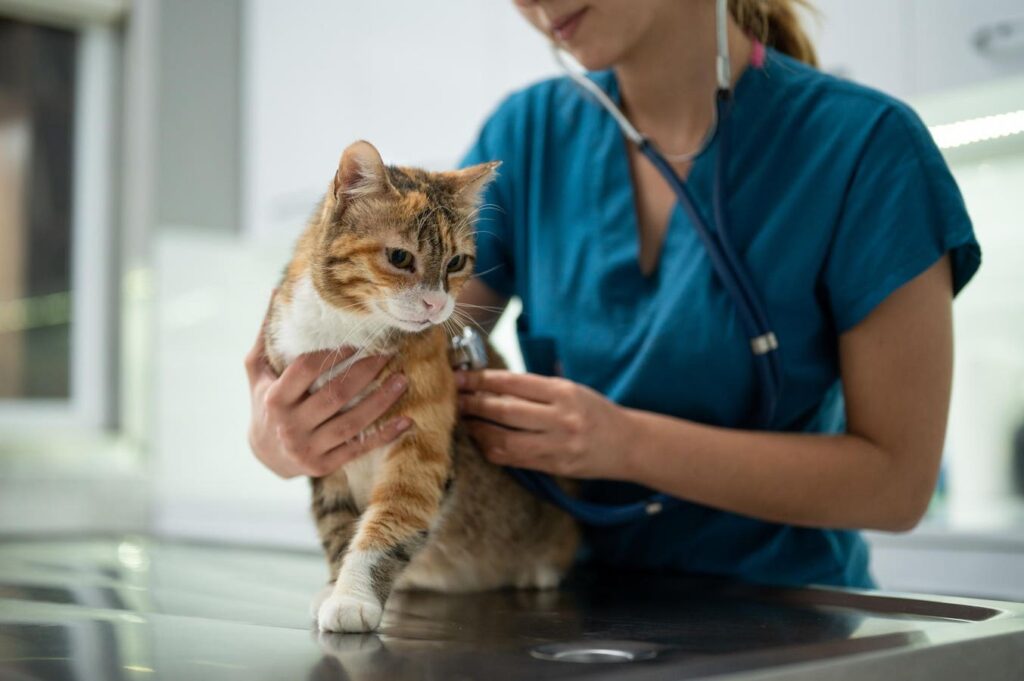Jackie Jaakola is the Director of EveryCat Health Foundation, the world’s leading nonprofit focused solely on feline health research.
Over 46 million cat owners around the country can’t possibly be wrong. And for good reason: Cats are the quirky balls of fur and love that purr their way into our hearts.
During the pandemic, many people got the opportunity to really spend more quality time with their furry friends and get to know them better as they worked from home. Cat owners also began to think more about their pets’ health and the role that feline medicine plays in helping them live long and healthy lives.
While people see the value in donating to organizations that focus on general health, significantly less is prioritized for animal health research. In fact, of all the types of charitable donations given to organizations, only 3% are gifted to charities that specialize in all animals, with only a small portion dedicated to cat health research.
If you own a pet yourself—or employ loving cat owners who share their workday with these furry best friends—the importance of maintaining the health and well-being of cats is clear.
But there are other good reasons to support feline research as well, such as generating positive buzz for your business and creating opportunities to maximize tax benefits.
Growth Potential In Feline-Focused Industries
Compared to other pets, cats are pretty independent, but they still need us and the fruits of feline research to help them live healthy and happy lives. One major area of this research has been related to nutrition.
For example, research found that when cats are deficient in the essential amino acid taurine, cats can develop heart disease and other serious health problems like failed vision and reproductive difficulties. The results of these studies led pet food companies to change the ingredients of their products to ensure that cats were getting the taurine they needed to be healthy.
Similarly, feline medical research has led to great strides in pain detection and management. This is especially important because cats tend to suffer in silence when they’re in pain.
One significant advance in this area was the development of the feline grimace scale (FGS), which allows us to recognize the pain cats may be experiencing through changes in their facial expressions.
These advancements underscore the importance of continued investment in feline research—not just for the well-being of our pets, but for the happiness of the many employees with cats, not to mention the pet care industry as a whole, who can use these insights to create better products and services for cat owners.
Investing In Feline Research And Spending Trends
More on the point of how cats can make our employees happier, owning a cat can help decrease our chances of developing cardiovascular disease, boost our immune system and improve our sleep quality.
Additionally, cats can help reduce stress, decrease loneliness and ease feelings of anxiety and depression. Owning a cat can even improve our romantic relationships.
This means that when we invest in feline research, we’re also making an investment in ourselves. Feline research has opened up numerous products that cat lovers can get for their fur babies.
For example, cat food has evolved in numerous ways thanks to research, which empowers pet owners to choose the best options. From taste to kibble size to gravy preferences, there’s a world of choices out there thanks to feline research. And it’s especially important for cats with medical conditions that make a special diet necessary.
Research has made feline life a lot more entertaining as toys have also progressed. People who want to keep it simple may choose feather wands their cats can chase around or catnip pillows they can enjoy a relaxing cuddle with. Thanks to the discoveries scientists have made, there are also more high-tech toys that cats can activate on their own, and even apps they can play with on your tablet.
Tax Benefits And PR Opportunities
Chances are, employers have cat lovers on their staff, but even if they don’t, investing in feline research can have a positive impact on their workforce. Getting the word out about your investment in cat-centric organizations can generate a lot of positive press—and goodwill in the community—which helps create a strong employer brand that good talent will flock to.
Supporting cats can also lead to significant tax benefits. There are many feline-related charities that qualify for tax deductions. If you create a matching gift program for employees who donate to these organizations, it can further attract talent. Speak to your financial advisor to determine how to best maximize any tax benefits.
We All Share This World
The more we learn about feline health, the more we learn about our own. This makes cat philanthropy even more vital, considering that many of the conditions we develop—from diabetes to kidney disease to heart issues—are also found in cats.
This means there’s a lot of crossover between the use of human health interventions, such as antiviral drugs, and those provided in veterinary medicine.
Feline medicine is also making contributions to sustainability. For instance, in my work, we are currently funding research to investigate alternative forms of protein for cats. This way, our cats can enjoy environmentally friendly meals designed to keep them and the planet healthy.
Cats are universal, and culturally, they are considered more than just animals—they’re part of the family. Given the prevalence of cat owners all over the world, chances are, you can easily find many opportunities to support feline well-being.
For businesses, investing in feline health research and innovations is not only a way to make a difference but also a means to tap into a global community of passionate pet owners.
Forbes Business Council is the foremost growth and networking organization for business owners and leaders. Do I qualify?
Read the full article here

